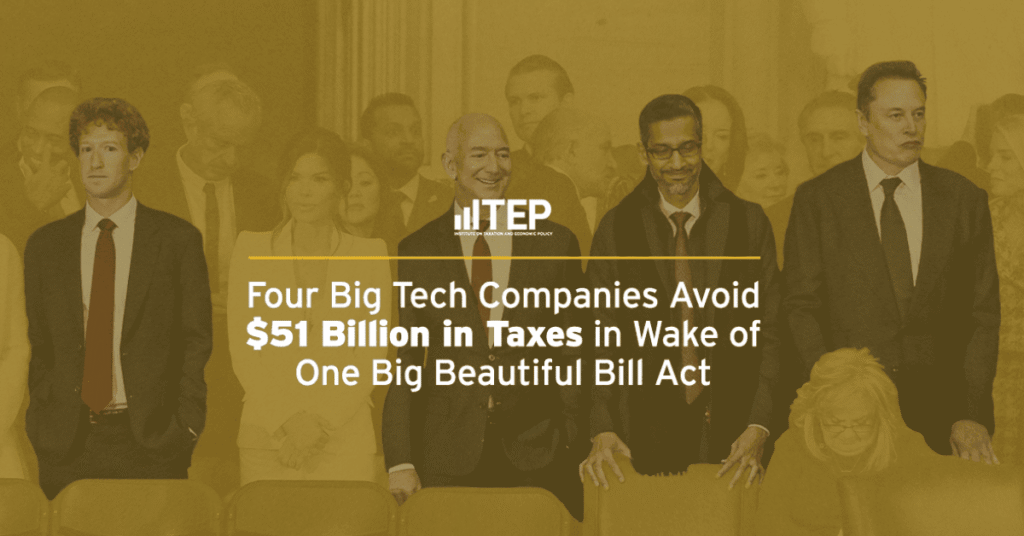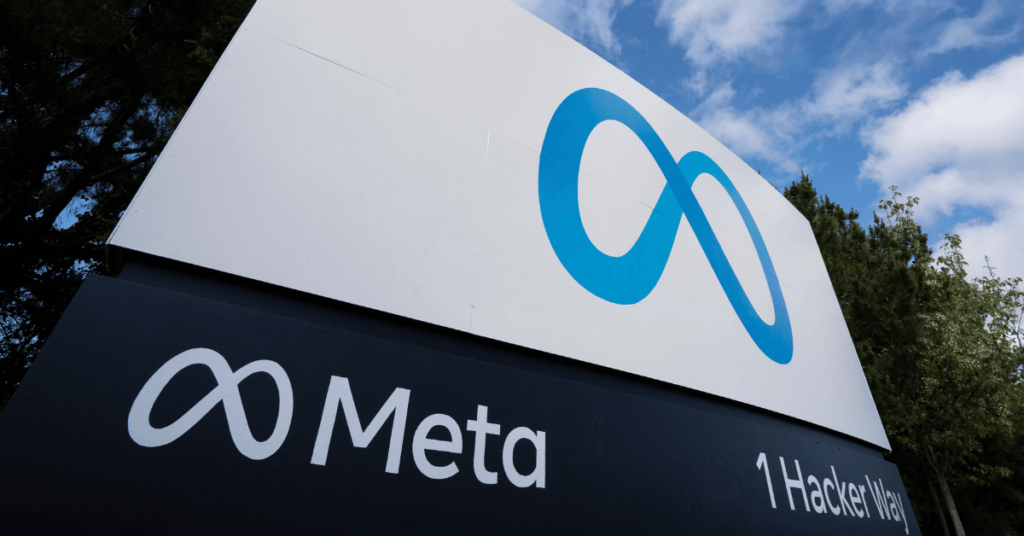
Recent Work
2144 items
NCTI is an Important Part of the Federal Corporate Tax. States Should Adopt It Too.
February 12, 2026 • By Carl Davis

Including NCTI in state corporate tax law is an effective way to neutralize much of the tax avoidance that occurs when multinational companies artificially shift their profits into overseas tax havens.
State Rundown 2/11: This Valentine’s Day, Conscious Decoupling Is Our Love Language
February 11, 2026 • By ITEP Staff

While some may be excited for a romantic Valentine’s Day this weekend, many state lawmakers are breaking up and decoupling from recent federal tax changes that are poised to leave states with revenue shortfalls – much like a bad date who forgets their wallet and asks you to pick up the tab.
Trump Undermined the Constitution to Give Corporations a $10 Billion Tax Cut
February 10, 2026 • By Matthew Gardner

This unilateral corporate tax cut from the Trump administration will cost $10 billion over a decade unless it is reversed.
What Did 2025 State Tax Changes Mean for Racial and Economic Equity?
February 9, 2026 • By Brakeyshia Samms

The results are a mixed bag, with some states enacting promising policies that will improve tax equity and others going in the opposite direction.
D.C.’s Fiscal Autonomy is at Stake, District’s Conformity Decisions Should Stand
February 6, 2026 • By Kamolika Das

Federal lawmakers passed a bill along party lines that would force the District of Columbia to override the decision of local elected officials and implement all of the costly and inequitable federal tax cuts passed under the “One Big Beautiful Bill Act” (OBBBA).
Four Big Tech Companies Avoid $51 Billion in Taxes in Wake of One Big Beautiful Bill Act
February 6, 2026 • By Matthew Gardner

Four of the corporations whose CEOs flanked President Trump at his 2025 inauguration ceremony have now disclosed that they collectively received $51 billion in federal tax breaks in 2025, much of that likely from the One Big Beautiful Bill Act (OBBBA).

Despite wintry conditions across much of the country, that hasn’t stopped state lawmakers from debating major tax policy changes.
Meta’s Federal Tax Rate Hits an All-Time Low Due to Breaks Expanded by Trump Tax Law
February 4, 2026 • By Matthew Gardner

The company paid an effective federal income tax rate of just over 3.5% in 2025, the lowest it has recorded since the company went public as Facebook in 2012.
Trust Reform is Needed to Protect States, Especially in the Wake of IRS Enforcement Cuts
February 3, 2026 • By Sarah Austin

Trust use is widespread among the wealthiest households, with reports showing that roughly half of the nation’s wealthiest people rely on trusts for tax avoidance reasons
State Tax Watch 2026
February 2, 2026 • By ITEP Staff

ITEP tracks tax discussions in legislatures across the country and uses our unique data capacity to analyze the revenue, distributional, and racial and ethnic impacts of many of these proposals. State Tax Watch offers the latest news and movement from each state.
An Anti-Affordability Agenda: Trump’s Advisors Call on States to Raise Taxes on the Working Class and Drastically Cut Taxes for the Rich
January 29, 2026 • By Carl Davis

The Trump administration’s Council of Economic Advisors suggests that states consider drastically raising sales taxes and using those new revenues to pay for repealing taxes on corporate and personal income. Working-class families would face dramatic tax increases while the nation’s wealthiest families would see their state tax bills plummet.
Tesla Reported Zero Federal Income Tax on $5.7 Billion of U.S. Income in 2025
January 29, 2026 • By Matthew Gardner

Tesla enjoyed almost $5.7 billion of U.S. income in 2025 but paid $0 in federal income tax. Over the past three years, the Elon Musk-led company reported $12.5 billion of U.S. income on which its current federal tax was just $48 million.

As state legislative sessions ramp up across the country, property taxes are one of many issues dominating tax policy conversations in statehouses.
Intuit Helped Limit Americans’ Tax Filing Options While Raking in Millions in Tax Breaks
January 28, 2026 • By Joe Hughes

As tax filing season begins, families have fewer options than last year, thanks to the heavy lobbying efforts of big tax-preparation corporations like Intuit (the parent company of TurboTax).
An Analysis of a Potential Reduction in Massachusetts’ Long-Term Capital Gains Tax Rate
January 26, 2026 • By Eli Byerly-Duke, Matthew Gardner

A ballot initiative in Massachusetts has proposed cutting the base rate for nearly all income sources from 5 to 4 percent. In 2026, this would cost the state about $5 billion per year of which $347 million would come from the reduced rate on long-term capital gains.
